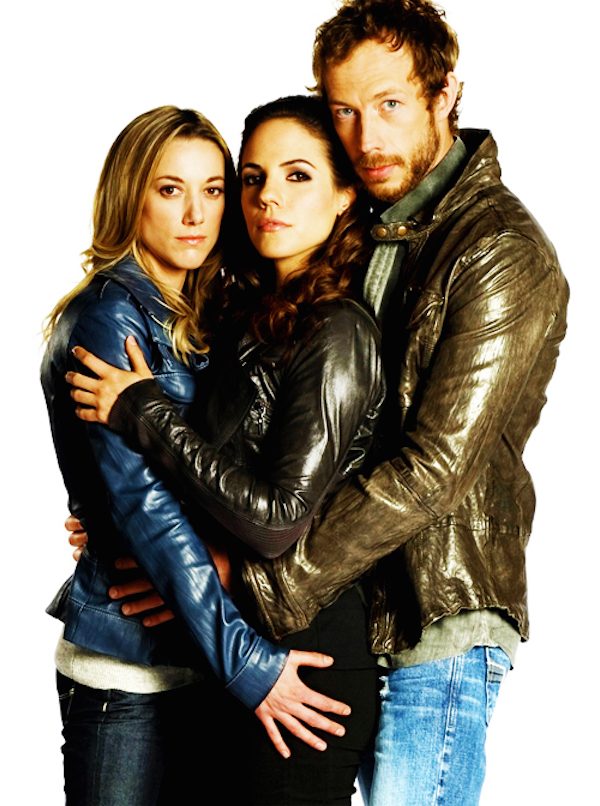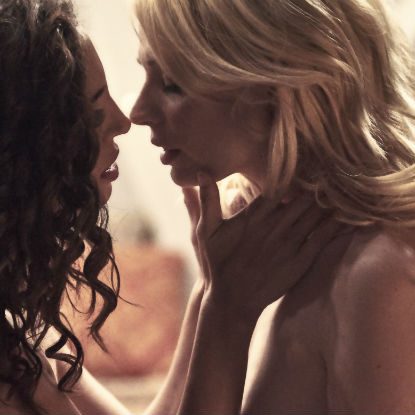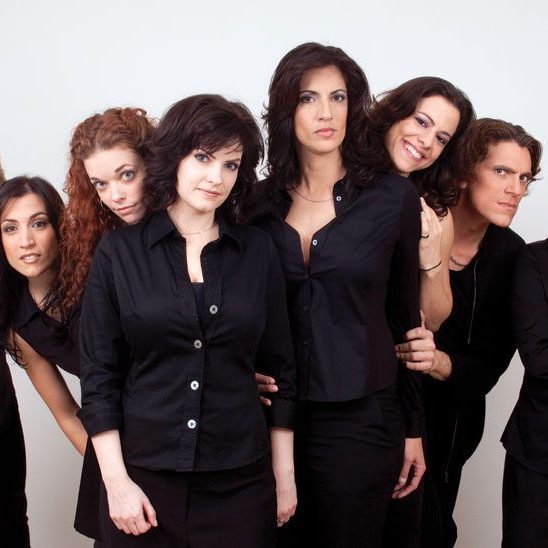
The trials and tribulations of being a bisexual woman in a movie…
We’re either confused and out to cause a stir before settling down or portrayed as fickle seductresses, hell-bent on getting our end away and avoiding the shackles of true love.
There’s usually a cis-het man or a woman waiting in the wings to assign us to our “proper” sexuality… or, more often, a life of loneliness and empty gin-soaked one-night stands ahead of us. Disclaimer: there is hands-down goddamned nothing wrong with having more than one lover if everyone you’re knocking Doctor Martens with is cool with it, but non-monogamy is too often assumed to be a prerequisite of being bisexual and that’s not true.
“You know what, don’t bother telling your parents about us,” lesbian Maxine snaps at her bisexual girlfriend Shirin in Appropriate Behavior (2014), directed by Desiree Akhavan.
“I know you, and the more that I think about it this is probably just a phase.” Shirin, however, manages to dispel these stereotypes – at least IMHO. She’s not perfect but she’s fighting enough battles to be somewhat excused. Hemmed in by the conflicting responsibilities of being the traditionally feminine daughter her family wants her to be, whilst simultaneously wanting to be a good girlfriend to her trendy partner, Sirin is genuinely stuck in a hinterland between acceptable “straightness” and acceptable “gayness”.
Margarita, With A Straw (also 2014) is another film that I watched with increasing glee.
A young woman, falling for one person and then falling a bit more dramatically for another, in a refreshingly unfetishized fashion. Get over it – it could be any bog-standard straight love story from what I’ve just described. Except, well, Leila (played by Kalki Koechlin) is bi and has cerebral palsy. Statistically, all monogamous bi people have the potential to end up with someone. And their partners are, by default, going to be one gender (or one particular combination of genders). And let’s face it, someone as viciously clever and gorgeous as Leila was always going to override negative preconceptions about her disability and her sexuality. Did I remember to mention that this film is brilliant?
Some movies, however, fall back relaxedly on to the stereotype. Basic Instinct (1992) is one of those.
I’m yawning already as I describe the ice pick, the threesome and the booze that apparently fuelled it all. All bi women are hot, blonde, oversexed and mental. We get it. In Catherine’s (played by Sharon Stone) defence, I have also used chat-up lines like, “You know I don’t like to wear any underwear, don’t you, Nick?” in the past. But I’ve only ever eyed sharp metal objects with a mildly over-keen interest. So yeah, stigma-perpetuating horror.
OK, so The Hunger (1983) is a massive orgy too.
But it involves David Bowie and Catherine Deneuve so it’s slick, fantastic and we all enjoy a little orgy fantasy once in a while – right? Don’t worry, I’m boring enough that I won’t cheat on my boyfriend. But yeah, David Bowie and Catherine Deneuve. As Catherine’s character, Miriam, says: “You’ll be back. You’ll be back. When the hunger hurts so much it knows no reason! Then you’ll need to feed. And then you need me to show you how.” It’s not really that exciting, though, to be honest. We bi chicks watch Netflix and chill with the best of them.
Chasing Amy (1997) isn’t as bad as the premise perhaps suggests.
It’s a titillating love triangle and we’re sort of meant to feel sorry for the guy. But when he comes out with lines like: “So I’m totally weirded out by this, right? And then I just start blasting her. Like… I don’t know how to deal with what I’m feeling, so I figure the best way is by calling her a slut, right? And tell her she was used. I’m… I’m out for blood. I really wanna hurt this girl.” Um, no? Yes, I think the correct answer offered by a decent human being would be no. He refers to his attitude to finding out she’s bisexual, in case you were wondering.
I don’t even know what to say about Score (1974).
I got a bit lost when it got to about ménage à quatre-vingt or whatever it was. It was from the 70s, though, when horny washing machine repairmen were à la mode and sometimes they found two bored housewives at the same time. Whatever. If they’re all happy.
Here ends, then, my rapid whistle-stop tour of bi women in film. I think we can safely say that things are getting better, but there’s still a long way to go in terms of wider representation. We come in all shapes and forms, just like everyone else. And being attracted to more than one gender doesn’t necessarily mean needing to be with people of more than one gender simultaneously. Or hacking people up with ice picks.

-uai-500x500.jpg)



